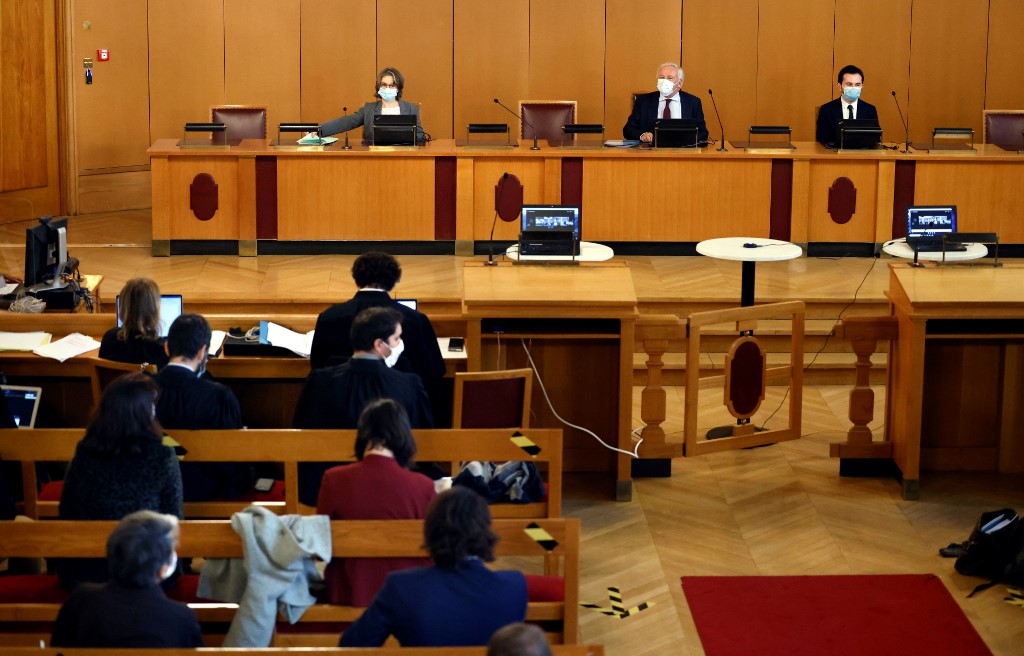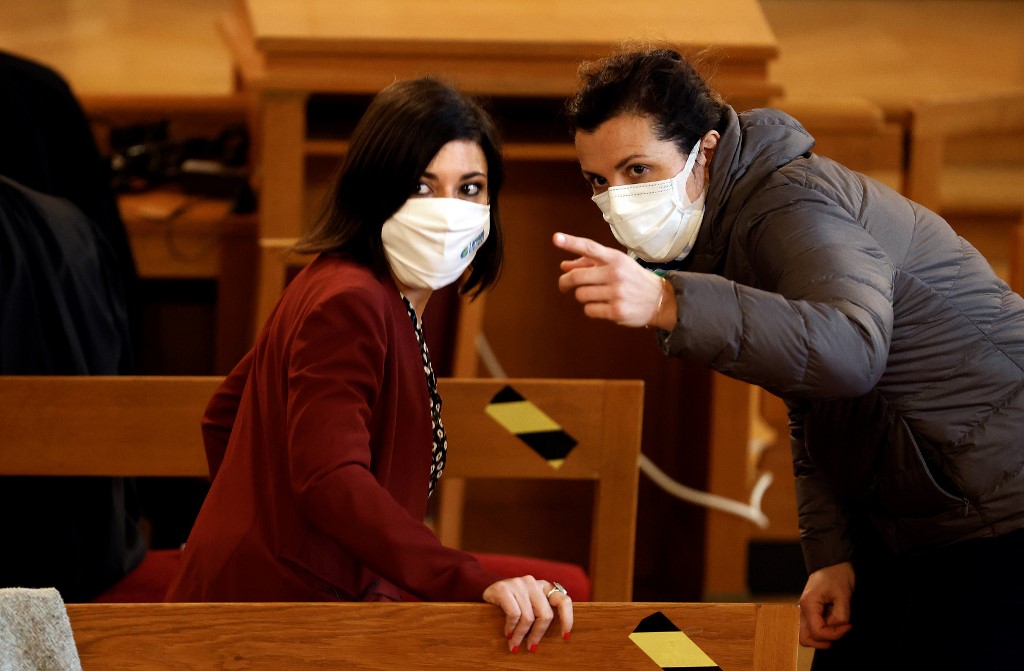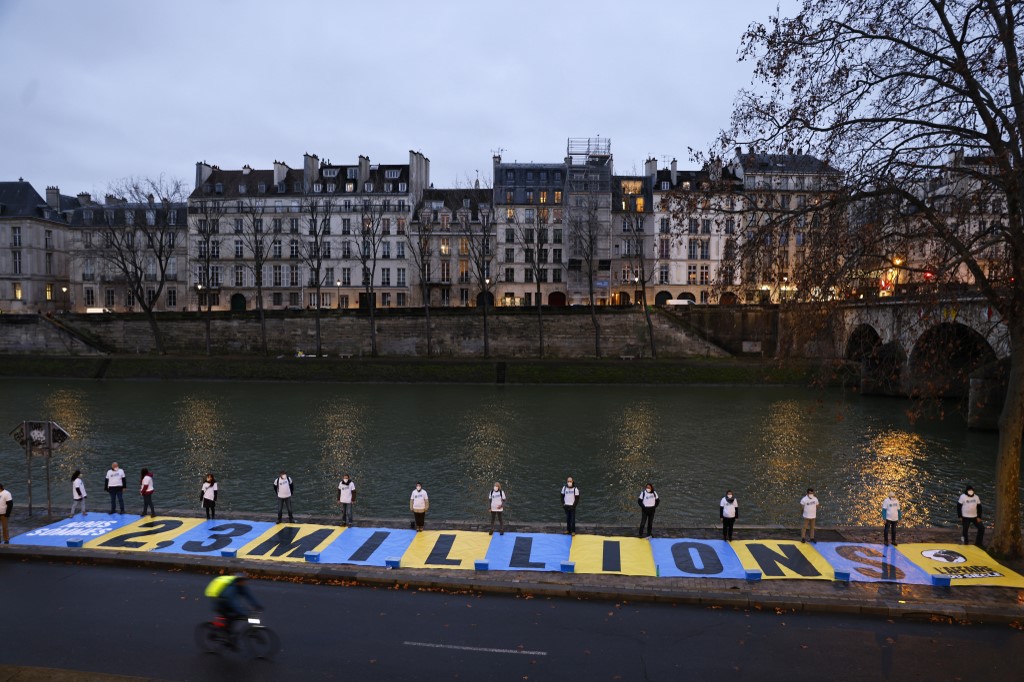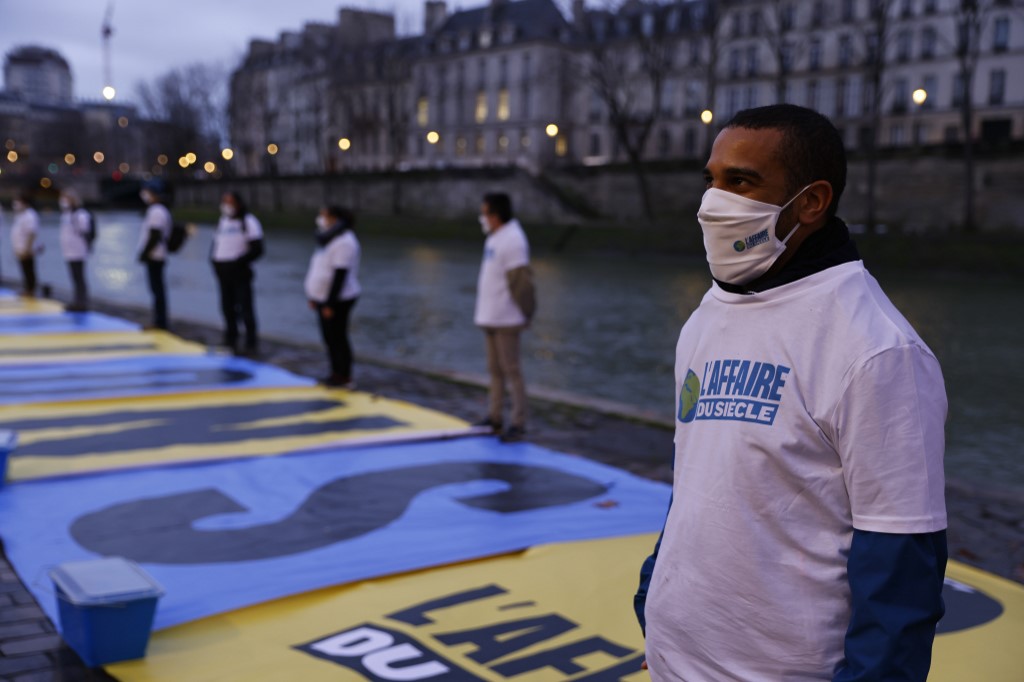
by Amélie BOTTOLLIER-DEPOIS
Agence France-Presse
PARIS, France (AFP) — Paris court began hearing Thursday a complaint brought by NGOs backed by two million citizens accusing the French state of failing to act to halt climate change, the first such case in the country.
The campaign groups want the court to hold the state responsible for ecological damage and say victory would mark a symbolic step in the fight to persuade governments to do more.
If the NGOs win the case “it would be a landmark decision for climate justice in France,” Cecilia Rinaudo, coordinator of Notre Affaire a Tous (Our Common Affair), told AFP.

She said it would expose the contradiction between the words and actions of France and other governments around the world.
“France has positioned itself as a climate champion at the international level and the results are still not there,” she said.
An international accord signed in Paris five years ago aims to limit global warming to less than two degrees Celsius over pre-industrial levels, and preferably to 1.5 degrees.
But experts say governments are far from meeting their commitments and anger is growing among the younger generation over inaction, symbolised by the campaigns of Swedish teenager Greta Thunberg.
The hearing opened with a presentation by France’s public rapporteur, which is not legally binding, arguing that the state was “at fault for not respecting the trajectory” needed to bring greenhouse emissions down.
‘We are 2.3 million’

The French case is part of a mounting push by climate campaigners across the world to use courts against governments.
In 2019, the Dutch Supreme Court ordered the Netherlands to slash greenhouse gas emissions by at least 25 percent from 1990 levels by the end of 2020 after a case brought by an NGO.
The French case began in December 2018 when four groups accused the government of failing to reduce emissions with a formal complaint backed by more than two million people in an online petition — a French record.
Unsatisfied with the response, the NGOs, also including Greenpeace France and Oxfam France, then filed their legal complaint in March 2019 seeking symbolic damages of just one euro ($1.21) from the state.
“We hope for a jump,” said Cecile Duflot, the head of Oxfam France. “Our deep desire is not to condemn the state, it is for the state to act,” the former minister told AFP.
To remind of the numbers who had signed the petition a giant banner reading “We are 2.3 million” was put up on the banks of the River Seine in Paris.
Double-edged sword

“We are full of hope for this hearing and the decision that will follow,” Greenpeace France director Jean-Francois Julliard told AFP.
“The icing on the cake would be a decision to urge the state to do more to put France back on the trajectory of the Paris Agreement”, he said.
While France has committed to reducing emissions by 40 percent by 2030 compared with 1990, the NGOs say it is exceeding carbon budget pledges.
They also complain of shortcomings in the energy renovation of buildings or development of renewable energy, saying this is having a daily impact on the health and quality of life in France.
The NGOs have presented 100 testimonies from individuals after collecting more than 25,000 online.
“For me, climate change — with the increase in the frequency of natural disasters, the rise in sea temperatures and the progression of coastal erosion — is a reality now,” said Jean-Francois, a producer of mussels on the island of Oleron in western France.
The government rejects accusations of inaction, pointing to the energy-climate law of 2019 that “reinforces the climate goals” by aiming for carbon neutrality by 2050 or a 40 percent drop in the use of fossil fuels by 2030.
In its defence sent to the court, the government also rejected the request for compensation over ecological damage, arguing that the state cannot be held solely responsible for climate change when France represents around one percent of global emissions.
Julliard acknowledged the case could be a double-edged sword for the NGOs.
“If we lose, then it will be easy for the state to say: ‘We won in court, so stop your incessant demands,'” he said.
© Agence France-Presse







